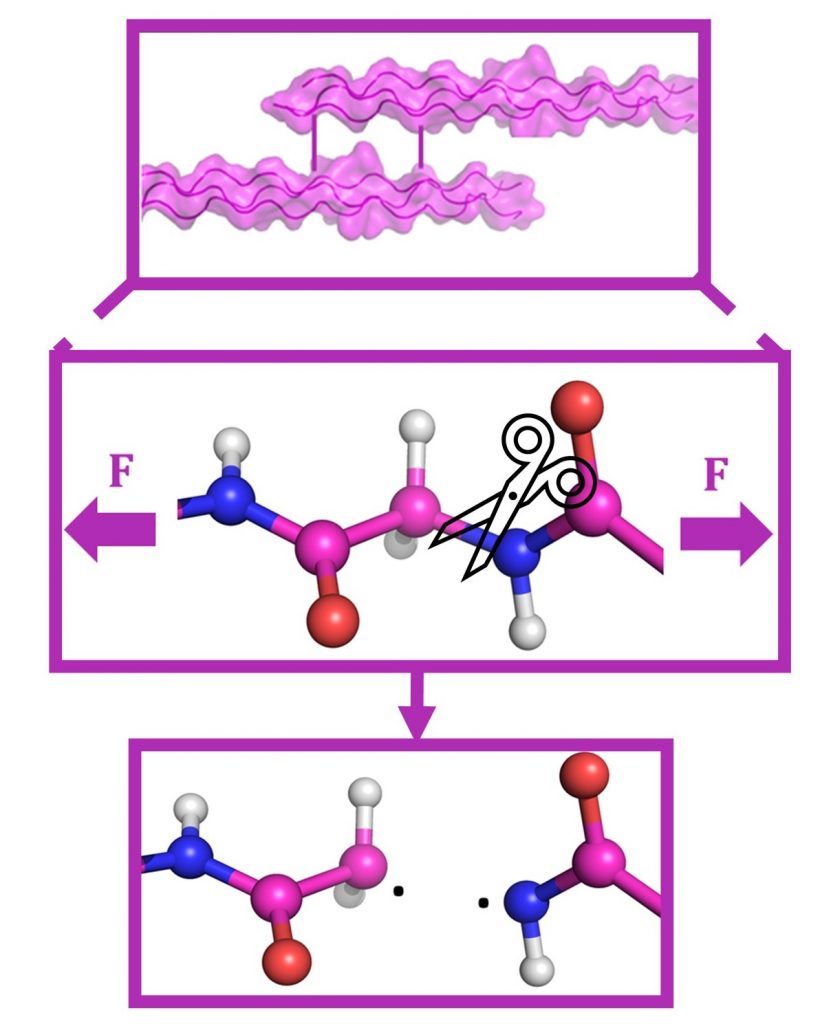Project 8: Learning molecular bond rupture
Molecules break apart when pulled by force. Mechanical rupture mostly proceeds through homolytic bond scission, resulting in two molecules with unpaired electrons, so-called mechanoradicals. This phenomenon is known for nearly a century to occur in virtually all polymers when pushed, pulled, sheared or milled. Only recently, in the Graeter lab, such mechanoradicals were shown to also occur in biomolecules, namely proteins. [1]
A yet unresolved problem is where molecules break under force, that is, what the weakest link in a molecule is. Building on previous studies on mechanochemistry in the Dreuw and Graeter groups, we here aim at devising a new transferable, efficient and yet accurate framework that predicts the weakest links in a given molecule, being it a polymer, a biomolecule, or something else. The new approach will based on JEDI [2] and machine learning approaches. It will allow to predict rupture in complex molecules and material solely based on Molecular Dynamics simulations under force. Reactivity – here bond rupture – will in this way be seamlessly built into classical simulations, opening a wide variety of applications, such from material fracture to polymer ageing.
References:
[1] C. Zapp et al, Mechanoradicals in tensed tendon collagen as a source of oxidative stress, Nat Commun 11(1),2315.
[2] T. Stauch and A. Dreuw (2016). Advances in Quantum Mechanochemistry: Electronic Structure Methods and Force Analysis, Chem. Rev. 116:14137.

Team


Prof. Dr. Andreas Dreuw
Principal Investigator (IWR, Heidelberg University)
Phone: +49 6221 5414735
More Information

T.T.-Prof. Dr. Pascal Friederich
Principal Investigator (Karlsruhe Institute of Technology)
Phone: +49 721 60844764
More Information